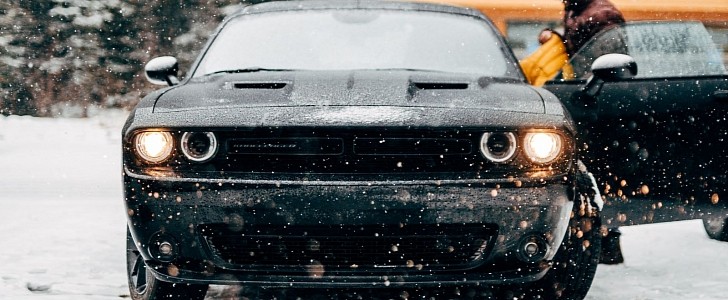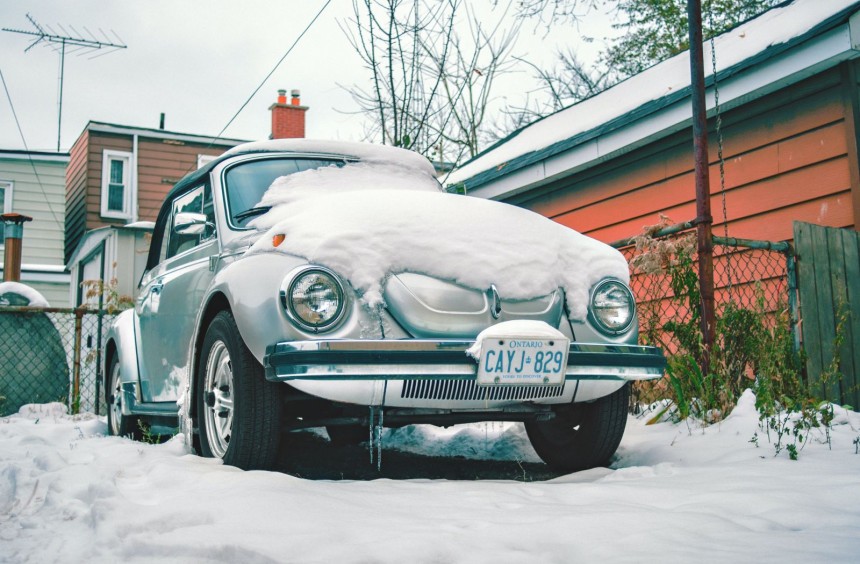There’s a common misconception among car owners about how to warm up the car’s engine in the winter correctly. Most think that letting the car idle for an extended period is the way to go, but the reality is that doing so will do more harm than good.
Every winter, while I was growing up, my dad had this obsession with warming up the car properly before every trip. I remember countless occasions where we just sat there, in the cold, waiting for the engine temperature to go up.
Since the car was powered by a carbureted engine, letting it idle before driving off was a wise move. That’s because carburetors lacked sensors and relied on a mechanical system to adjust the air-fuel mixture and warm the engine up.
Those who owned a car powered by such an engine can confirm that driving off immediately after starting the engine, without giving the carb enough time to work its magic, was extremely difficult and often resulted in damaged spark plugs or a stalled engine.
Modern powerplants use an electronic fuel injection system equipped with sensors that help them compensate for the cold temperatures by dynamically delivering more gasoline into the mixture until it reaches optimum temperature. That means that the system will adjust fuel delivery accordingly without damaging any components once you drive off.
Letting your modern car idle for an extended period is not a good idea because the fuel injection system will continue to pump extra gas into the combustion chamber. Some of it might reach the cylinder walls since it doesn’t evaporate as quickly in cold temperatures.
Gas is an excellent solvent, and a prolonged idle can cause it to wash away the oil off the cylinder walls, significantly increasing friction and causing premature wear of crucial components like piston rings and cylinder liners.
To a certain extent, this also applies to diesel-powered engines. It may not have the same solvent properties as gasoline, but pumping too much of it into the engine will lead to the same oil-depleting result.
Apart from the damage to the engine, idling for an extended period also results in poor fuel economy. As I mentioned earlier, to compensate for the cold temperature, more fuel is added to the mix, leading to increased consumption.
Even worse, idling a car releases the highest amount of greenhouse gasses and particulate matter in the air. During winter, the denser cold air keeps smog closer to the ground where it doesn’t disperse as quickly as it would do during the summer. So, if you don’t care about your engine’s health, think about the environment.
The fastest and safest way to warm up the engine is to let it idle for five minutes so that it can buildup oil pressure and then just drive off. If you take it easy until it reaches normal operating temperatures, you won’t harm the engine or the environment.
Since I own a diesel without an auxiliary heating system, I can relate to those of you who argue that driving off after five minutes will result in frostbites, but since the engine will warm up quicker, so will the cabin. Also, many aftermarket auxiliary heaters are not as expensive as you might think. If winters are hard in your area, you should seriously consider installing one.
Since the car was powered by a carbureted engine, letting it idle before driving off was a wise move. That’s because carburetors lacked sensors and relied on a mechanical system to adjust the air-fuel mixture and warm the engine up.
Those who owned a car powered by such an engine can confirm that driving off immediately after starting the engine, without giving the carb enough time to work its magic, was extremely difficult and often resulted in damaged spark plugs or a stalled engine.
Letting your modern car idle for an extended period is not a good idea because the fuel injection system will continue to pump extra gas into the combustion chamber. Some of it might reach the cylinder walls since it doesn’t evaporate as quickly in cold temperatures.
Gas is an excellent solvent, and a prolonged idle can cause it to wash away the oil off the cylinder walls, significantly increasing friction and causing premature wear of crucial components like piston rings and cylinder liners.
To a certain extent, this also applies to diesel-powered engines. It may not have the same solvent properties as gasoline, but pumping too much of it into the engine will lead to the same oil-depleting result.
Even worse, idling a car releases the highest amount of greenhouse gasses and particulate matter in the air. During winter, the denser cold air keeps smog closer to the ground where it doesn’t disperse as quickly as it would do during the summer. So, if you don’t care about your engine’s health, think about the environment.
The fastest and safest way to warm up the engine is to let it idle for five minutes so that it can buildup oil pressure and then just drive off. If you take it easy until it reaches normal operating temperatures, you won’t harm the engine or the environment.
Since I own a diesel without an auxiliary heating system, I can relate to those of you who argue that driving off after five minutes will result in frostbites, but since the engine will warm up quicker, so will the cabin. Also, many aftermarket auxiliary heaters are not as expensive as you might think. If winters are hard in your area, you should seriously consider installing one.








